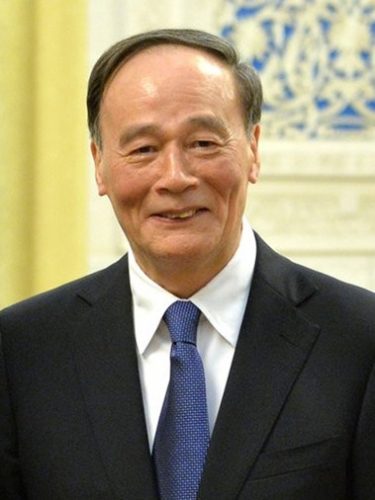A meta‐analysis performed by Choi et al., the results of which were published in the Journal of the American Heart Association, indicated that CoQ10 supplementation improved statin‐associated muscle symptoms, suggesting a therapeutic approach for statin‐induced myopathy.
Lowering low‐density lipoprotein cholesterol with statin therapy reduces cardiovascular disease risk by up to 40% in a wide range of patients. However, a high prevalence of statin‐induced myopathy reported from studies adversely affects the cardiovascular disease benefits of statins. The mechanism of statin‐induced myopathy is not yet clear, but one possible mechanism is mitochondrial dysfunction resulting from a reduction in circulating/intramuscular CoQ10. Past literature had demonstrated a possible association between the induction of coenzyme Q10 (CoQ10) after statin treatment and statin‐induced myopathy. In a meta‐analysis performed by Banach et al, only 6 studies with 302 patients were included, and no beneficial effect of CoQ10 supplementation on statin‐induced myopathy was documented, which was attributed to the limited number of enrolled studies and their small sample sizes. Thus, whether CoQ10 supplementation ameliorated statin‐induced myopathy remained unclear. In the present meta‐analysis, 6 newly published RCT studies were included, and the effect of CoQ10 supplementation on statin‐induced myopathy in 12 RCTs with 575 patients was comprehensively evaluated.

“CoQ10 appears to help on reducing muscle symptoms. I use it selectively in patients where this is an issue. It would be nice to have larger trials, but so far this is supportive of using it in some patients.”- Dr. Christopher Cannon, M.D.
The investigators searched the PubMed, EMBASE, and Cochrane Library to identify randomized controlled trials investigating the effect of CoQ10 on statin‐induced myopathy. The pooled weighted mean difference (WMD) was calculated using a fixed‐effect model and a random‐effect model to assess the effects of CoQ10 supplementation on statin‐associated muscle symptoms and plasma creatine kinase. The methodological quality of the studies was determined, according to the Cochrane Handbook. Publication bias was evaluated by a funnel plot, Egger regression test, and the Begg‐Mazumdar correlation test. Twelve randomized controlled trials with a total of 575 patients were enrolled; of them, 294 patients were in the CoQ10 supplementation group and 281 were in the placebo group. The investigators reported that compared with placebo, CoQ10 supplementation ameliorated statin‐associated muscle symptoms, such as muscle pain (WMD, −1.60; 95% confidence interval [CI], −1.75 to −1.44; P<0.001), muscle weakness (WMD, −2.28; 95% CI, −2.79 to −1.77; P=0.006), muscle cramp (WMD, −1.78; 95% CI, −2.31 to −1.24; P<0.001), and muscle tiredness (WMD, −1.75; 95% CI, −2.31 to −1.19; P<0.001), whereas no reduction in the plasma creatine kinase level was observed after CoQ10 supplementation (WMD, 0.09; 95% CI, −0.06 to 0.24; P=0.23).

“In the present meta‐analysis, 6 newly published RCT studies were included, and the effect of CoQ10 supplementation on statin‐induced myopathy in 12 RCTs with 575 patients was comprehensively evaluated. In contrast to the previous meta‐analysis, the present study demonstrated that CoQ10 supplementation ameliorated SAMSs, such as muscle pain, muscle weakness, muscle cramps, and muscle tiredness, independent of administered doses of CoQ10 (100–600 mg/d) or CoQ10 supplementation time (30 days to 3 months).”- Dr. Hua Qu Ming Guo Hua Chai, M.D.
In contrast to the previous meta‐analysis, the study by Choi and his colleagues demonstrated that CoQ10 supplementation ameliorated SAMSs, such as muscle pain, muscle weakness, muscle cramps, and muscle tiredness, independent of administered doses of CoQ10 (100–600 mg/d) or CoQ10 supplementation time (30 days to 3 months). The RCT results demonstrated that statins reduced circulating CoQ10 by 16% to 54%; a meta‐analysis of 6 RCTs also suggested a significant reduction in plasma CoQ10 after statin treatment, regardless of the statin solution, treatment duration, or treatment dose. For changes in intramuscular CoQ10, Choi et al documented that statins decreased CoQ10 levels in cardiac muscle and skeletal muscle. Recently, polymorphisms in the coenzyme Q2 gene, important in the synthesis of CoQ10, was reportedly strongly associated with statin‐induced myopathy. Therefore, a deficiency of CoQ10 could be involved in statin‐induced myopathy, with CoQ10 supplementation being an important approach to ameliorate statin‐induced myopathy.
In the publication, the authors acknowledged the limitations of the present meta‐analysis. First, there were only a few eligible RCTs, and most of them included relatively small populations; thus, the impact of the variables (eg, age, sex, and exercise) on the outcome could not be assessed. Second, the eligible studies were heterogeneous because of the enrolled population characteristics and dose and duration of CoQ10 supplementation. However, meta‐regression and sensitivity analysis were performed to warrant the reliability of the present meta‐analysis.



Leave a Reply
You must be logged in to post a comment.